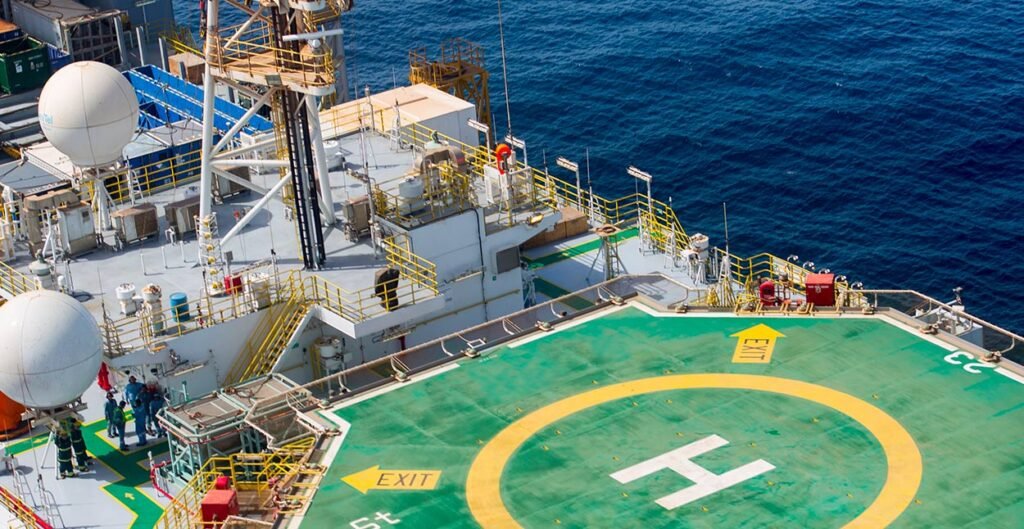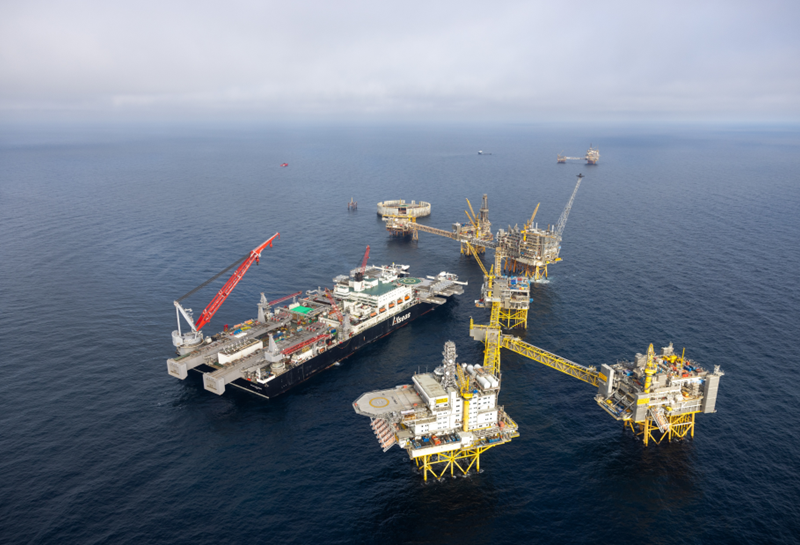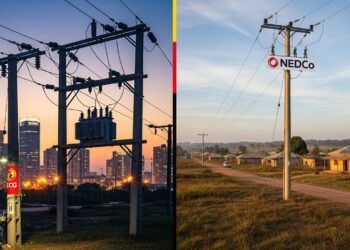Ghana could soon find itself lagging behind emerging African oil producers such as Namibia and Senegal unless it undertakes urgent structural reforms and addresses deep-rooted governance issues within its petroleum sector, Petroleum Economist and Political Risk Analyst, Dr. Theo Acheampong, has warned.
Speaking on the theme “Beyond Declining Barrels: Can Ghana’s Petroleum Revenues Still Power Development?”, Dr. Acheampong painted a sobering picture of a once-promising oil industry now constrained by policy inconsistencies, institutional inefficiencies, and waning investor confidence.
According to Dr. Acheampong, the government’s policy direction has failed to strike the right balance between national control and commercial viability, leading to investor uncertainty.
“They (Government) are doing what we attempted to do in 2007 or the early 2000s attracting the big players and allowing them to develop the industry.
“In our case, we want to have our pick and eat it, and unfortunately, that cannot happen. That’s not how the industry works.”
Dr. Theo Acheampong, Petroleum Economist and Political Risk Analyst

Dr. Acheampong noted that Ghana’s petroleum policy environment has become increasingly unattractive to investors due to heavy taxation, regulatory unpredictability, and bureaucratic delays.
These factors, he said, have combined to discourage exploration and limit new discoveries.
“Investors make long-term bets in oil and gas, often spanning decades.
“If the fiscal regime and regulatory processes keep changing, no serious operator will commit billions of dollars here.”
Dr. Theo Acheampong, Petroleum Economist and Political Risk Analyst
Ghana Trails New Entrants in Oil Discoveries

Dr. Acheampong contrasted Ghana’s declining momentum with the exponential growth of other African oil frontiers.
He revealed that Ghana’s proven petroleum reserves and resources currently stand at around 1.5 billion barrels, a figure that pales in comparison to Namibia and Senegal’s recent discoveries.
Dr. Acheampong disclosed, “Namibia next door has actually found in excess of 11 billion barrels and counting,” pointing out that the southern African nation achieved these discoveries in less than a decade, thanks to a stable fiscal regime and aggressive exploration policies.
He explained that Ghana’s inability to make significant new finds since the Jubilee discovery in 2007 underscores a fundamental policy failure.
Beyond policy setbacks, Dr. Acheampong identified governance lapses at the Ghana National Petroleum Corporation (GNPC) as a key factor undermining the sector’s performance.
He criticised what he described as “political overreach” and “institutional inefficiency” at the state oil company.
“If you look at serious national oil companies like Petronas, Pertamina, or ADNOC, they are run as professional, commercially driven entities.
“In our case, we have people running these organisations who frankly don’t need to be there.”
Dr. Theo Acheampong, Petroleum Economist and Political Risk Analyst
He argued that GNPC’s bloated workforce, political appointments, and weak accountability mechanisms have eroded its technical credibility and operational effectiveness.
Calls for reform at GNPC have grown louder in recent months amid scrutiny over its governance structure and spending priorities.
Stakeholders have urged the corporation to adopt a more transparent, commercially focused approach aligned with international best practices.
Call for Strategic Industry Reforms

Dr. Acheampong emphasised that fiscal tightening alone would not revive Ghana’s oil and gas sector. Instead, he called for strategic industry reforms that strengthen value chains, enhance local content, and promote industrial linkages.
“What you really need to do is allow the industry to grow such that you can get your revenues and, importantly, create the value chain that allows you to become an industrial hub.”
Dr. Theo Acheampong, Petroleum Economist and Political Risk Analyst
He noted that Ghana’s long-term petroleum potential remains significant, given its unexplored offshore basins and growing domestic gas demand. However, unlocking this potential requires political will and institutional discipline.
Dr. Acheampong’s cautionary remarks come at a time when the country’s crude production continues to decline, falling from a peak of over 200,000 barrels per day in 2019 to around 145,000 barrels per day in 2024.
Without new discoveries and sustained investment, Ghana’s output could continue to drop, undermining fiscal stability and long-term energy security.
As global competition intensifies, Dr. Acheampong’s message to policymakers is clear: Ghana must confront its structural weaknesses head-on or risk ceding its place among Africa’s top oil producers.























